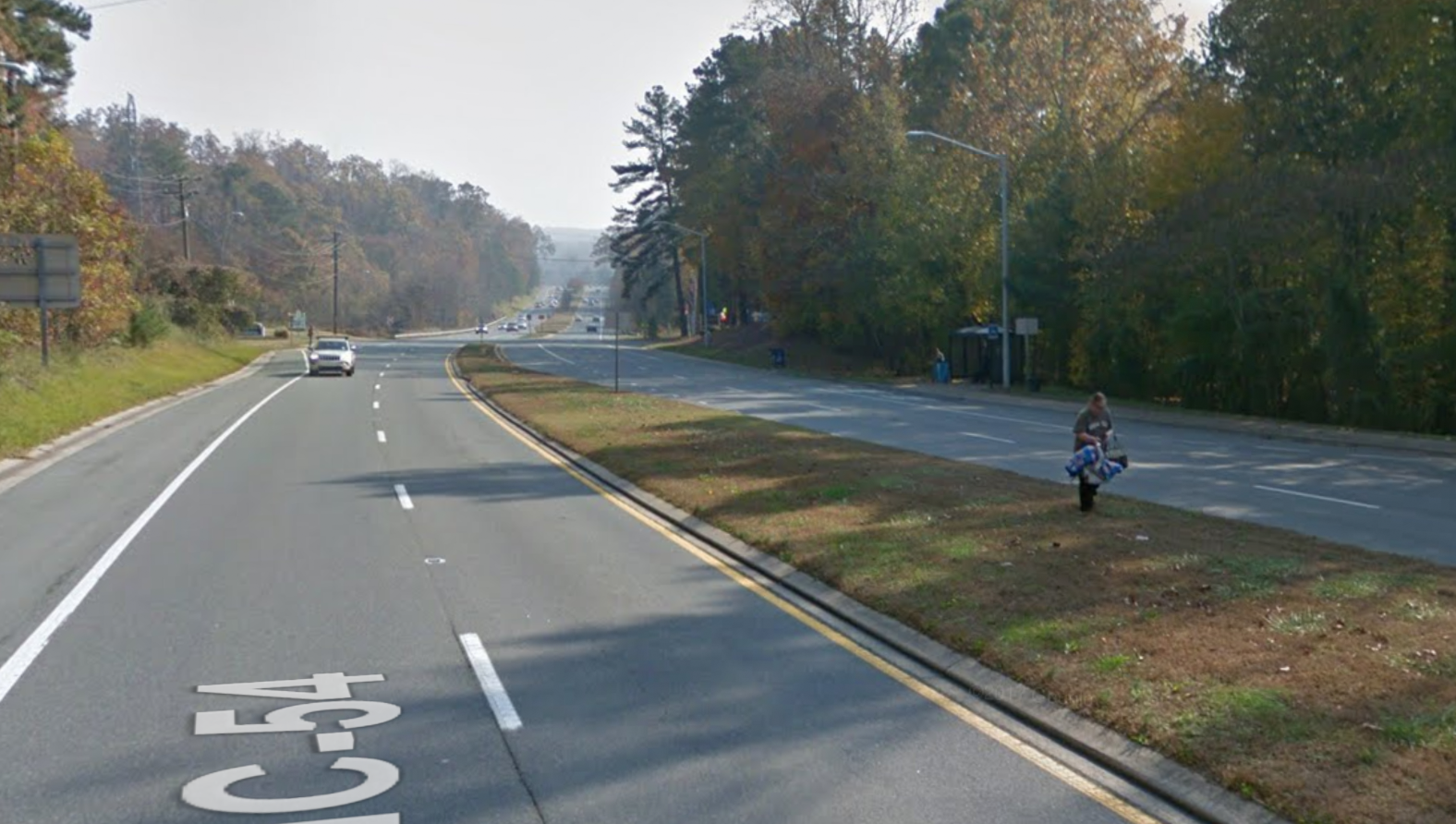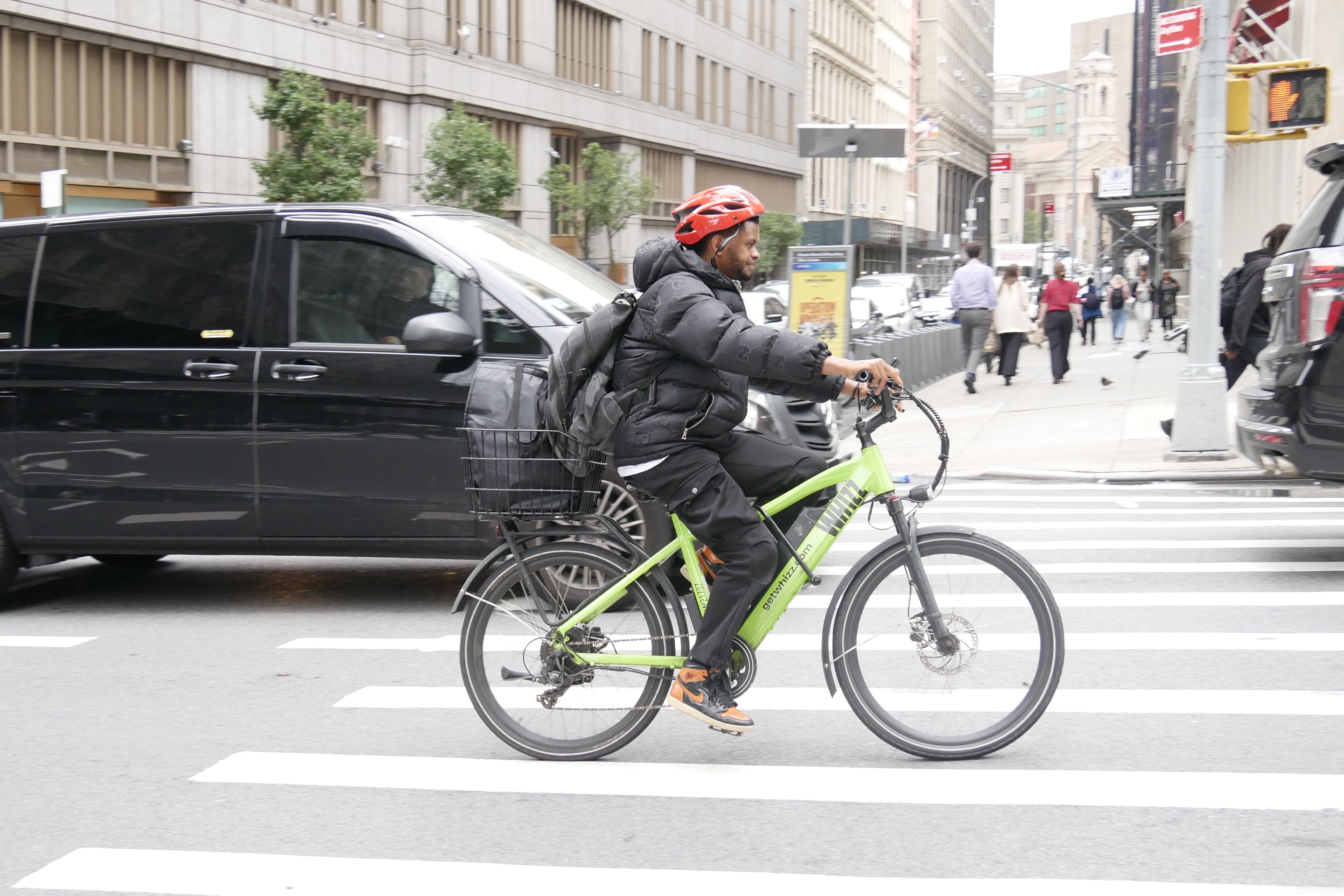Licensed transportation engineers are supposed to abide by an ethical code of conduct that places the highest priority on public safety. But if you look outside at the closest street, you'll probably see the result of engineering decisions that are antithetical to protecting people's lives.
America has built out a transportation system that places people at much greater risk of death and serious injury than in peer countries around the world. In the last two years, the annual death toll has only escalated. The most vulnerable road users -- people getting around without a car -- account for a disproportionate share of the carnage.
It's in that context that Bill Schultheiss, a transportation engineer with Toole Design Group, is challenging his profession to uphold its ethical standards.
A 20-year veteran of the field, Schultheiss says transportation engineers are failing to live up to their own codes of ethics. Every state has developed its own ethics code that is supposed to apply to all professionally licensed engineers doing business in that state. All the codes hew to similar principles, like the text below from Indiana, which emphasize public safety and health:
We spoke with Schultheiss recently about his concerns with the state of the profession and what needs to change to develop a safe transportation system. The interview has been lightly edited for clarity.
Can you explain your contention that engineers are failing at a key ethical requirement?
If you look at the history of our profession, we have not fully embraced our number one ethical mandate: to protect the safety, well-being and health of the public.
In the context of what’s out on the ground, it’s quite obvious that we cared more about prioritizing automobile travel. We didn’t think about other people on the road and we didn’t design for them. It’s still part of the profession, that mindset. We spend billions of dollars every year and we’re not addressing the historical legacy of these bad decisions.
By other people, you mean pedestrians?
Mostly people who don’t own a car: transit users, pedestrians, children walking to school, people bicycling, seniors that don’t have access to a car. We’ve created a dangerous environment for them. We’ve created a major equity problem.
I think a lot of people don’t think about these issues. We’ve got disproportionate risk in poor communities where they don’t even have the basic elements to make a safe environment.
I think there’s a civil rights element here that again hasn’t been taken seriously.
Can you provide some real-world examples?
I think fundamentally we as a society need to look at our funding. It’s screwed up. We’re not honest about the implications of our funding.
We built a car culture, we built this myth that all the highways are paid by the users and we can’t use that money for anything else. The Highway Trust Fund -- that’s a problem. I think in the 1950s when we didn’t have a highway system, I could see the logic. But it’s not the 1950s any more and we still have 1950s arguments and strategies.
We’re one of the only countries that has dedicated highway spending. In other countries, it's just general funds, and you have public conversations about how that money is spent.
What I hear over and over [from other engineers] is we have no money to fix this. We don’t have money to maintain traffic signals, we don’t have money to build sidewalks. It’s a ridiculous statement on its face because we have billions of dollars but we just don’t spend it on those things.
A lot of state DOTs, their mission in their minds is regional mobility, and it comes down to highways and traffic. I’ve been involved with projects where the state DOT will take that money, use it to justify a widening, and feel no obligation to spend it on sidewalks, because that’s a local concern. It’s perverse.
It’s irresponsible and I say it’s unethical. It’s ignoring the impact you have on that environment and that community.
A lot of my colleagues will say their hands are tied because they believe they have no money or support to address these equity issues.
How might this play out on a public street?
I’m on the National Committee [on Uniform Traffic Control Devices] and so I’m involved in writing design guidance [for public roadways]. One thing I tried to do is require pedestrian signals be installed on all traffic signals. That was resisted by some of the state DOTs. They said that’s a local responsibility. Because it costs money and that’s not what they want to spend money on. Even though that’s the right thing to do, they didn’t want to spend money on it and defer it from highways. We know it’s dangerous for pedestrians to not have signals on big roads. I brought up ethics in that discussion and it made people uncomfortable.
People are starting to understand this. A majority of our profession is on board with this, but there are still some powerful people who are not sympathetic to vulnerable people. There was a guy on that committee, I think he should lose his engineering license. His response was like, "Why should we care about pedestrians?"
Some of those kinds of people need to be weeded out of the transportation profession. We’ve been reluctant to challenge them.
The excuse is always in our profession, well we know what the right thing were supposed to do is, we don’t have the money. The bus stop thing [Streetsblog's Sorriest Bus Stop in America competition] is a perfect example.
How many [transportation agencies] are pointing the finger at the other guy saying, "It’s their job," but no one’s doing anything about it? We know when things are not safe. We need to do more to talk to people to let them know that these things are not safe — and not just ignore the problem.
Tell us a little about your background.
I've been a consulting engineer my entire career, 20 years. I travel throughout the country and I see this everywhere. I go to states where they’re spending a billion on a highway widening where they don’t even have the basic essentials in their community.
Cars can go anywhere. It’s not like we’re missing a network for car travel. We need to finish what we started. We need to make what we have safe for the most vulnerable before building any more.
What gives you hope?
The young people. Almost every young engineer that comes in is really good. I’ve had some people say we just need to wait them out, the older people. The reality is the older people are the ones in power. They’re the ones serving on the chairs of these committees. We’re living with the consequences of the choices they made in their careers. And the average person on the street doesn’t understand this, they’re just getting hurt and killed.
We need to start talking about it and ask the hard questions and challenge people.






